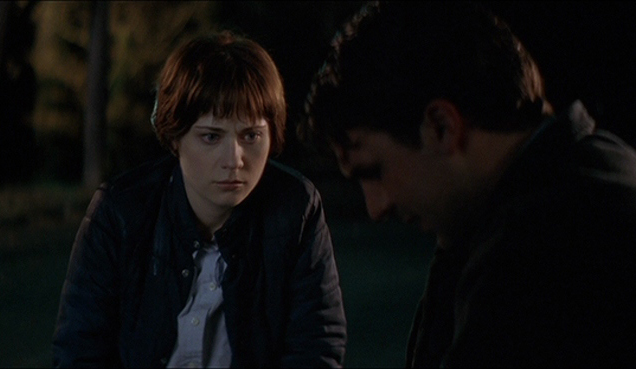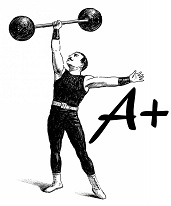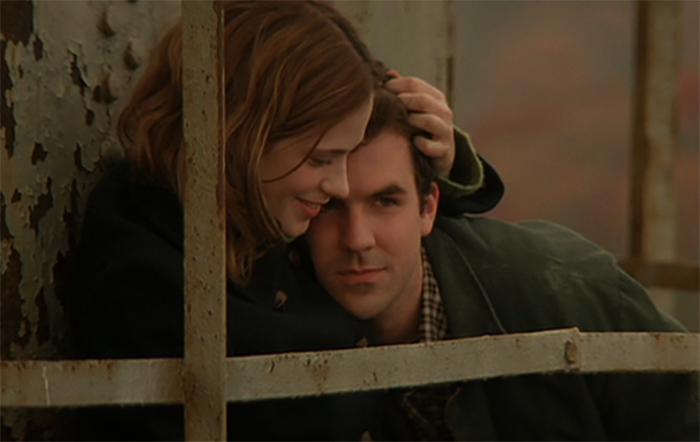Romantic comedies are perhaps as popular as they are because we like to be reminded of love. We like to think ourselves the leading men (or women) in these movies, to which love comes as easily as the latest pop song, happening with the nonchalance of a pick-up line or a conversation over coffee. Rom-coms like “How to Lose a Guy in 10 Days” are funny, star-studded, and ironic; a movie about losing a guy in ten days, while humorous, comes from a hyper-reality where finding a guy – or girl – can happen in as short a span of time. However, real life paints with a different brush, one where finding love might take years of patience or even luck – and doesn’t happen with motorcycle chases on the George Washington Bridge, scored to the driving beat of the Gin Blossoms.
David Gordon Green’s 2003 effort, “All the Real Girls,” comes from a world that knows nothing of these kinds of movies, a world painted by a small town with only a factory, a tavern, and working class men and women who spend their free time kicking around places like go cart tracks and junk yards. At the forefront are Paul (Paul Schneider) and Tip (Shea Whigham), who have been friends forever, followed by others in their group such as characters named Bust-Ass and Bo.
In a town where Saturdays at the track or hanging around the work-site is considered leisure time, the return of Tip’s 18-year-old sister, Noel (Zooey Deschanel) from boarding school garners marked excitement among the friends – only overprotective Tip doesn’t want to talk about it. But the situation is forced, perhaps suddenly but perhaps inevitably – when Noel and Paul develop feelings for each other and begin a relationship. However, Paul’s love ‘em and leave ‘em past strains his relationship with Tip as he struggles to accept Paul in his sister’s life.
“All the Real Girls” is a movie that, dealing with this subject matter, takes the time to look at its character’s motivations and feelings, not glossing over uncomfortable subjects in its presentation. It involves hard conversations; one between Paul and Tip, as they have a discussion about their rough and tumble past, is heartfelt and honest. The movie wisely avoids having Tip grant Paul permission – or give him a warning – though both elements are contained within the words they never speak. Another scene on a picnic table between Paul and Noel has the same effect; words are said, but cloud the strong emotions behind them. Green’s script is smart, naked, and unassuming, letting the audience feel what the characters feel without poking, prodding, or suggestion.

“All the Real Girls” isn’t a moral tale. Most of its dialogue is just that – simply dialogue – with often-profound and pained statements offered not as proof of anything except that they happened. Some scenes, such as when Noel whispers into Paul’s ear, are the kind of quirky occurrences we have come to expect from independent films. However, others, such as when Paul recants a story of his first sexual experience, are the kind of painful, real, and honest scenes that can only come from movies like this.
In this light, Paul’s past is offered not as apology, but as explanation, blanketed in the kind of forgiveness that only real love can offer. He’s hurt women with his actions, but has been hurt, and seems to ask nothing of these actions but to be understood. “When people come up from before, I want you to understand what they hate when they see me,” he tells Noel. With naïveté, Noel attempts to understand. Whether naïveté, however, or wisdom, is called smartly into question during later scenes – scenes where this kind of understanding is asked of Paul in return.
Often-times, what doesn’t happen in a movie says more about life than what does. When watching movies – but particularly when watching movies about ordinary life – we want the protagonists to act differently than we would in the situation, because perhaps when they don’t, we recognize something about ourselves, and our own impotence, that we don’t want to admit.
There is a scene in this movie, in the front seat of a red pick-up, where Paul is in this situation. I found myself wanting him to do the one thing he wouldn’t do, rooted for him to do it, but then realized, sadly, that he couldn’t. If you’ve seen the movie, you know the scene; ask yourself what you would do in this situation. We’d like to think we would be stronger, do better. But maybe we can’t; maybe that’s the tragedy of the human condition.
“All the Real Girls” is a smart movie, a movie that paints its characters not as heroes but every-men. The movie portrays love and its intensity, its awkwardness, and, in equal measure, its agony. The movie may remind you of your first relationship or it may remind you of one much later in life. But whatever it does, it reminds you not of what it takes to get there, but of what it felt like to be there, which might be an infinitely superior achievement. It’s lack of expectation – along with wonderful acting and storytelling – makes it a truly wonderful picture to behold.



1 Comment
Pingback: » Out of the Furnace (R)